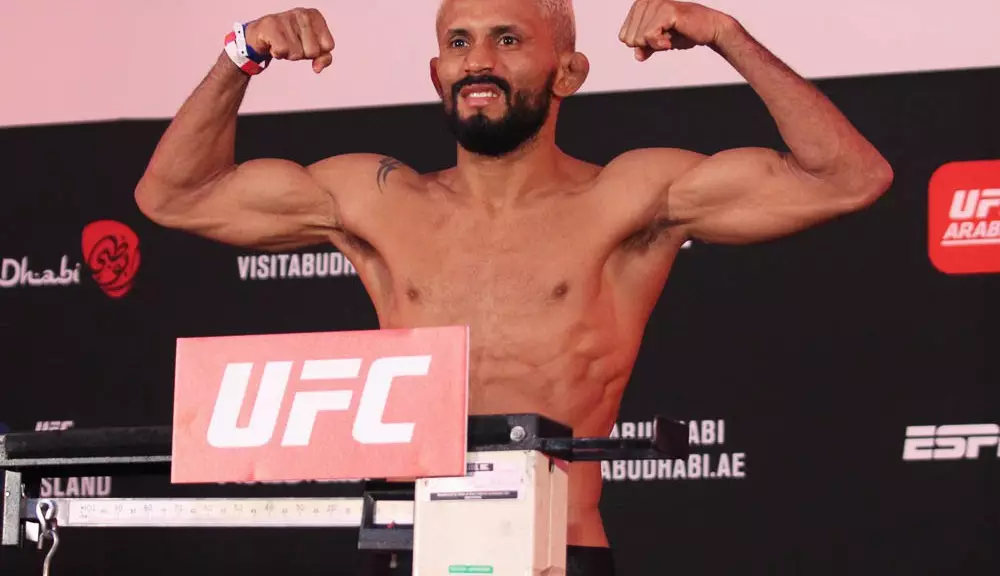Deiveson Figueiredo’s career within the UFC has taken spectators on a thrilling ride filled with ups and downs, reflecting the persistent nature of professional fighters in their quest for glory. Although he currently resides in the bantamweight division, Figueiredo is not ready to abandon his roots in the flyweight category. His dynamic abilities and tenacious spirit can create waves across two divisions, highlighting the fluid nature of fighter rankings within the UFC.
After an impressive title defense against Kai Asakura at UFC 310, Alexandre Pantoja expressed interest in a rematch with Figueiredo. Their previous encounter at UFC 240 ended in a unanimous decision victory for Figueiredo almost four years ago. However, while Pantoja acknowledges the competitiveness of Figueiredo, he voiced concerns regarding Figueiredo’s ability to safely descend back to the 125-pound flyweight limit. This raises significant questions regarding a fighter’s weight management in high-stakes bouts.
Despite these concerns, Figueiredo remains unfazed. He confidently states his discipline in managing his weight, viewing it as part of the profession. His readiness to drop back to flyweight carries with it both physical challenges and strategic implications. Figueiredo believes that the potential rematch could be a complicated encounter that showcases both fighters’ grappling skills, insisting that small mistakes could dictate the outcome.
Figueiredo’s transitioning between weight classes points to a broader issue of weight management in combat sports. Fighters often need to maintain a delicate balance when cutting or gaining weight, directly impacting their performance and health. Figueiredo is adamant that, although the sacrifices required to return to 125 pounds are challenging, they are surmountable. His disciplined training regimen is his key weapon against these obstacles.
However, it’s wise to consider the questions lingering in the background: Is the UFC sincerely interested in facilitating this rematch? Figueiredo’s sense of uncertainty revolves around the UFC’s potential reluctance to match him with Pantoja, given his belief that he possesses the skills that could reclaim the championship. The commercial implications of such a rematch—the hype, the stakes, and the visibility—cannot be overlooked by the UFC.
As Figueiredo adapts to his career’s current chapter at bantamweight, the ambition to be a dual-division champion serves as fuel for his motivation. Just weeks after a defeat in a pivotal match against Petr Yan, Figueiredo remains focused on his goals. The hunger to don championship gold drives the narrative forward; he is close yet remains vigilant about the adjustments necessary for success in the bantamweight division.
This dual ambition within the UFC is not uncommon, as fighters often dream of adding multiple title belts to their resumes. Figueiredo’s tenacity and flexibility could potentially place him among the ranks of notable fighters who have succeeded in conquering multiple weight classes—an impressive feat that carries great prestige.
The story of Deiveson Figueiredo exemplifies the relentless nature of mixed martial arts competitors. His mental fortitude and adaptability in the face of physical challenges are emblematic of the dedication required at the highest levels of the sport. While he continues to pursue greatness within the bantamweight division, his connections to the flyweight category linger, setting the stage for thrilling possibilities ahead.
In the world of mixed martial arts, stars can rise and fall with each fight, but Figueiredo seems poised, ready to reclaim his position as an elite fighter while keeping his options open. His readiness to embrace challenges, whether they pertain to cutting weight or facing his rivals anew, underscores a hallmark of a true competitor. In the unpredictable landscape of the UFC, where opportunities can shift in the blink of an eye, Figueiredo’s resolve remains a critical asset in his pursuit of championship aspirations.

